
Bon Jovi is an American rock band formed in 1983 in Sayreville, New Jersey. The band currently consists of singer Jon Bon Jovi, keyboardist David Bryan, drummer Tico Torres, guitarist Phil X, and bassist Hugh McDonald. Original bassist Alec John Such left the band in 1994, and longtime guitarist and co-songwriter Richie Sambora left in 2013. The band has been credited with "bridging the gap between heavy metal, rock and pop with style and ease".

Richard Stephen Sambora is an American musician, singer, songwriter and producer, best known as the lead guitarist of the rock band Bon Jovi from 1983 to 2013. He and lead singer Jon Bon Jovi formed the main songwriting unit for the band. He has also released three solo albums: Stranger in This Town in 1991, Undiscovered Soul in 1998, and Aftermath of the Lowdown released in September 2012.
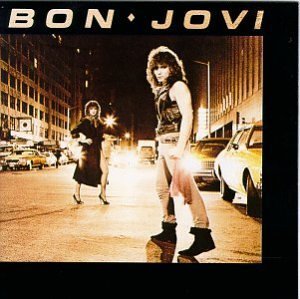
Bon Jovi is the debut studio album by American rock band Bon Jovi, released on January 23, 1984, by Mercury Records. Produced by Tony Bongiovi and Lance Quinn, it is significant for being the only Bon Jovi album in which a song appears that was not written or co-written by a member of the band. The album charted at number 43 on the US Billboard 200.

Slippery When Wet is the third studio album by American rock band Bon Jovi. It was released on August 18, 1986, by Mercury Records in North America and Vertigo Records internationally. It was produced by Bruce Fairbairn, with recording sessions between January and July 1986 at Little Mountain Sound Studios in Vancouver. The album features many of Bon Jovi's best-known songs, including "You Give Love a Bad Name", "Livin' on a Prayer", and "Wanted Dead or Alive".
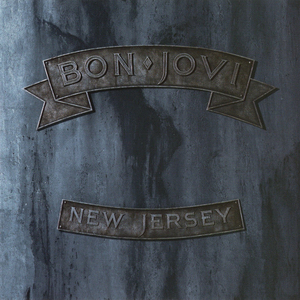
New Jersey is the fourth studio album by American rock band Bon Jovi, released on September 19, 1988, by Mercury Records. The album was produced by Bruce Fairbairn and recorded at Little Mountain Sound Studios in Vancouver, British Columbia, Canada. The album was the follow-up to the band's third album, Slippery When Wet, and reached number one on the Billboard 200 chart in its second week of release after debuting at number eight. It remained at the top for four consecutive weeks and was Bon Jovi's last album to do so until Lost Highway (2007).

Keep the Faith is the fifth studio album by American rock band Bon Jovi, released on November 3, 1992, by Mercury Records. It is Bon Jovi's last studio album to feature all five original band members as bass guitarist Alec John Such was dismissed from the band in 1994. It is Bon Jovi's first album since 1985's 7800° Fahrenheit not to be produced by Bruce Fairbairn. The album was produced by Bob Rock and was recorded at the Little Mountain Sound Studios in Vancouver, British Columbia. Keep the Faith marked a change to a "more serious interpretation of the band's pop-metal groove". It is also Bon Jovi's longest album to date, clocking in at 66 minutes.

These Days (stylized as (these Days)) is the sixth studio album by American rock band Bon Jovi, released on June 27, 1995, by Mercury Records. This was the first album Bon Jovi released after the dismissal of original bass guitarist Alec John Such, and their first album to be recorded officially as four-piece band (without an official bassist, but featured Hugh McDonald as a session/touring member on bass guitar). The album, produced by Peter Collins, Jon Bon Jovi and Richie Sambora, is praised by many critics and fans as their best album. These Days is overall a darker album in contrast to the band's usual brand of feel-good, inspiring rock songs and love ballads.

Crush is the seventh studio album by American rock band Bon Jovi. It was released on June 13, 2000, by Island Records. It was produced by Jon Bon Jovi, Richie Sambora, and Luke Ebbin. The album marks the longest timespan between studio albums for the band, with five years between the release of These Days (1995) and this album. After the initial plan to team up with producer Bruce Fairbairn fell through because of his death a year earlier, Bon Jovi and Sambora hired Luke Ebbin to update their sound with a smattering of loops and impressive arrangements.

Gorky Park, aka GP, or Парк Горького is a Soviet and Russian hard rock band formed in 1987 by musician, composer and producer Stas Namin at his producing centre SNC in Moscow. It is the only Soviet and Russian band to have some success on the MTV and Billboard charts and become world famous.
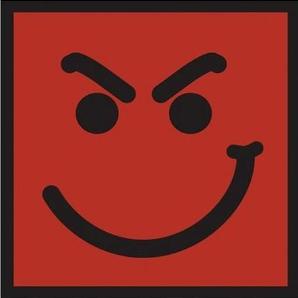
Have a Nice Day is the ninth studio album by American rock band Bon Jovi, released on September 20, 2005. Produced by John Shanks, the album was recorded at Sanctuary Sound II in New Jersey, and Ocean Way Recording in Hollywood, California.
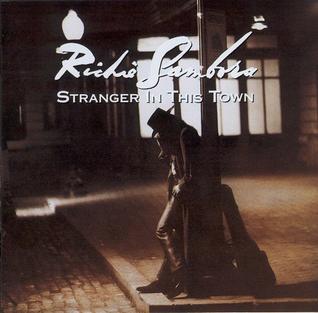
Stranger in This Town is the first solo studio album by Richie Sambora, the guitarist from the New Jersey band Bon Jovi. The album was released in 1991, while Bon Jovi was on a 17-month hiatus. Jon Bon Jovi also released a solo album, Blaze of Glory (1990), during this period.

Theofilos Xenidis, better known as Phil X, is a Canadian musician, singer and songwriter. Since 2013, he has played lead guitar with Bon Jovi and officially replaced former lead guitarist Richie Sambora in 2016.

Tokyo Road: The Best of Bon Jovi – Rock Tracks is the third overall greatest hits compilation album by American rock band Bon Jovi, exclusively released in Japan in 2001, where it charted at number five. The album has sold more than 400,000 copies in Japan and been certified double platinum by the Recording Industry Association of Japan (RIAJ).

The Circle is the eleventh studio album by American rock band Bon Jovi. Released on November 10, 2009, the album was produced by John Shanks. The album debuted at number 1 in several countries, including the U.S., where it sold 163,000 copies in its first week.
Dean Fasano was the lead singer of the bands Message and Prophet.

"What Do You Got?" is a song by American rock band Bon Jovi. It is one of four songs written for the band's Greatest Hits album, released in November 2010. The song is the first single from the compilation album. The song was released on the band's official website on August 27. It was also released to radio airplay on August 27. It was officially released on September 21, 2010 as a digital download, but the physical single was released in Germany on October 22, 2010.

What About Now is the twelfth studio album by American rock band Bon Jovi. Produced by John Shanks, the album was released on March 8, 2013 in Australia and March 12, 2013 in the United States. The album was promoted throughout the band's 2013 Because We Can: The Tour. It is the last album to feature lead guitarist Richie Sambora before his departure from the band the following month.

Burning Bridges is the thirteenth studio album by American rock band Bon Jovi consisting of new songs, as well as formerly unreleased and unfinished songs. Released on August 21, 2015 by Mercury Records. Produced by John Shanks, it was the first release since the departure of former guitarist Richie Sambora in 2013, with Shanks handling the lead guitar parts. Burning Bridges is their last album to be released through Mercury, marking the end of their 32-year relationship with the label. According to Jon Bon Jovi, the album serves as a "fan record" to tie in with an accompanying international tour: "It's songs that weren't finished, that were finished, a couple of new ones like the one we released as a single 'We Don't Run'." Burning Bridges was followed by This House Is Not for Sale, the band's fourteenth studio album released in 2016 which featured all new songs.

This House Is Not for Sale is the fourteenth studio album by American rock band Bon Jovi. Released on November 4, 2016, by Island Records. It is their first studio album with Phil X on lead guitar after replacing founding member Richie Sambora in 2013, as well as the first album to feature bassist Hugh McDonald as an official member after having played with the band in a touring/session capacity since 1994.
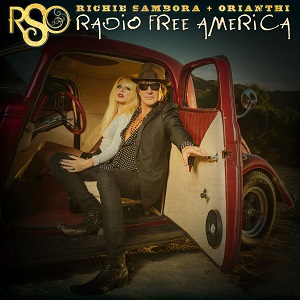
Radio Free America is the debut studio album released by RSO, a duo featuring Bon Jovi ex-guitarist Richie Sambora and Australian guitarist Orianthi. The album was released May 11, 2018.



















